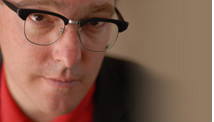LAUSANNE, Switzerland (AP) — Facing a wave of criticism from around the world, IOC President Jacques Rogge will meet with the head of wrestling's governing body to discuss ways the sport can fight to save its place in the Olympics.
The IOC executive board dropped wrestling from the program of the 2020 Games on Tuesday, a decision which brought a sharp backlash from wrestling organizations and national Olympic bodies around the world — including the United States, Russia and Iran.
The move must still be ratified by the full International Olympic Committee in September, giving wrestling time to try to overturn a decision against a sport which dates back to the ancient Olympics and has been featured since the inaugural modern games in 1896.
Rogge said Wednesday he has been contacted by Raphael Martinetti, the Swiss president of international wrestling federation FILA, and was encouraged by the sport's resolve to make changes and fight for its place.
"We agreed we would meet at the first opportunity to have discussions," Rogge said at a news conference at the close of a two-day board meeting. "I should say FILA reacted well to this disheartening news for them.
"They vowed to adapt the sport and vowed to fight to be eventually included in the 2020 slot."
Wrestling, which remains on the program for the 2016 Olympics in Rio de Janeiro, still has a chance to stay on the list for 2020 — if it manages to respond decisively to the wakeup call and convince the IOC to reverse course.
"This is not the end of the day. The door is not closed," IOC Vice President Thomas Bach of Germany said. "It's good to see the reaction of FILA to say, 'OK we have understood, we have to do something and we will present a plan for the future of wrestling.' That is the right attitude."
Wrestling now joins seven other sports vying for one opening on the 2020 program: a combined bid from baseball and softball, karate, squash, roller sports, sport climbing, wakeboarding and the martial art of wushu.
The IOC executive board will meet in May in St. Petersburg, Russia, to decide which sport or sports to propose for 2020 inclusion. The final vote will be made at the IOC general assembly in September in Buenos Aires, Argentina.
"The vote of yesterday is not an elimination of wrestling from the Olympic Games," Rogge said. "Wrestling will participate in the games in Rio de Janeiro. To the athletes who train now, I say, 'Continue training for your participation in Rio. Your federation is working for the inclusion in the 2020 Games.'"
Rogge was asked whether Tuesday's decision marked an end to wrestling's Olympic hopes.
"I cannot look into a crystal ball into the future," he said. "We have established a fair process by which the sport that would not be included in the core has a chance to compete with the seven other sports for the slot on the 2020 Games."
Rogge said he was fully aware of the strength of criticism leveled at the IOC for the move.
"We knew even before the decision was taken whatever sport would not be included in the core program would lead to criticism from the supporters of that sport," he said.
Still, complaints continued to pour in Wednesday from different parts of the world, uniting the U.S. and Iran on an issue in ways never imagined in diplomatic circles. The U.S. and Russia were also unlikely allies in the save-wrestling campaign.
Alexander Zhukov, head of the Russian Olympic Committee, said he would write to Rogge and "use all of our strength to persuade the IOC not to exclude wrestling from the Olympic program."
Wrestling has been one of Russia's strongest sports: Soviet and Russian wrestlers have won 77 gold medals.
In Tehran, Iranian wrestler Ali Reza Dabir, a gold medalist in 2000 Sydney Games, called wrestling "the identity" of the Olympics.
"Do we destroy our historical sites which are symbols of humanity?" he told The Associated Press. "No. Then, why should we destroy wrestling?"
The Wrestling Federation of India said it would do all that it can to reverse the decision, and the Olympic committee in Greece — the birthplace of the ancient and modern games — condemned "a decision that is clearly in total opposition to the history of the Olympic Games and of sports in general."
On Tuesday, U.S. Olympic Committee CEO Scott Blackmun questioned the IOC decision "given the history and tradition of wrestling, and its popularity and universality."
There are potential scenarios that would work in wrestling's favor.
IOC officials said it's possible the executive board could decide in May to put three sports forward for consideration, including wrestling. Then it would be up to the assembly to approve wrestling or not.
If the board decides to keep wrestling off the list, the IOC assembly — which has resisted past attempts by the board to impose changes to the sports program — could reject the proposed list of 25 sports altogether. That would mean the current 26 sports, including wrestling, would stay and the whole process would go back to square one.
Modern pentathlon — a five-sport discipline dating back to the 1912 Games — had been widely expected to face removal from the program but lobbied successfully to save its status.
IOC member Richard Carrion of Puerto Rico, who served on the executive board for eight years, said such decisions are inevitably swayed by politics.
"Some people are better at lobbying than others," he told the AP. "There is a political dimension to this. There are people who have connections, who have this and that. We may like it or not, but in a multi-national organization like this decisions get made in ways that are not completely logical."
___ Associated Press writers Ali Akbar Dareini in Tehran, Jim Heintz in Moscow and Elena Becatoros in Athens contributed to this report.

